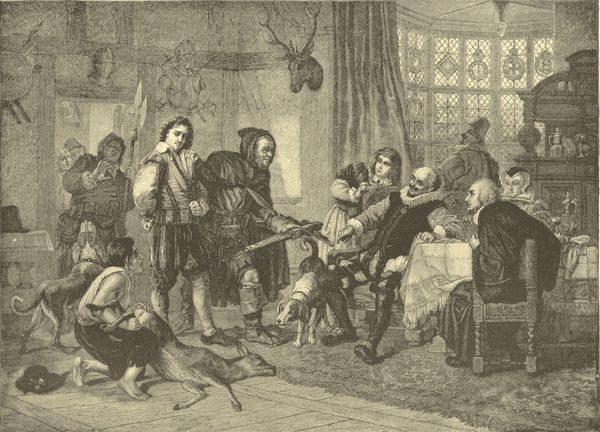 William Shakespeare, born in 1564 in Stratford-upon-Avon, England, is widely regarded as one of the greatest playwrights and poets in the English language.
William Shakespeare, born in 1564 in Stratford-upon-Avon, England, is widely regarded as one of the greatest playwrights and poets in the English language.
During the late 16th and early 17th centuries, he wrote at least 39 plays, 154 sonnets, and several narrative poems. His works cover a wide range of genres, including comedies (A Midsummer Night's Dream), tragedies (Hamlet, Macbeth, Othello), and histories (Henry V, Richard III), reflecting the complexity of human nature and the issues of his time.
Shakespeare's plays are known for their rich language, intricate plots, and deep exploration of themes such as love, power, betrayal, fate, and identity. His mastery of character development and poetic form has influenced countless writers and continues to captivate audiences worldwide.
 He was also a prominent figure in the London theater scene, closely associated with the Globe Theatre. Despite limited formal education, Shakespeare's knowledge of classical literature, politics, and human psychology shines through in his work.
He was also a prominent figure in the London theater scene, closely associated with the Globe Theatre. Despite limited formal education, Shakespeare's knowledge of classical literature, politics, and human psychology shines through in his work.
His impact on the English language is profound; he coined many words and phrases still in use today.
William Shakespeare died in 1616, but his legacy endures, with his plays continually performed, studied, and adapted across cultures and generations.
|


 William Shakespeare, born in 1564 in Stratford-upon-Avon, England, is widely regarded as one of the greatest playwrights and poets in the English language.
William Shakespeare, born in 1564 in Stratford-upon-Avon, England, is widely regarded as one of the greatest playwrights and poets in the English language.
 He was also a prominent figure in the London theater scene, closely associated with the Globe Theatre. Despite limited formal education, Shakespeare's knowledge of classical literature, politics, and human psychology shines through in his work.
He was also a prominent figure in the London theater scene, closely associated with the Globe Theatre. Despite limited formal education, Shakespeare's knowledge of classical literature, politics, and human psychology shines through in his work.














































